Lawn Rust: What Is It and How to Treat & Prevent It
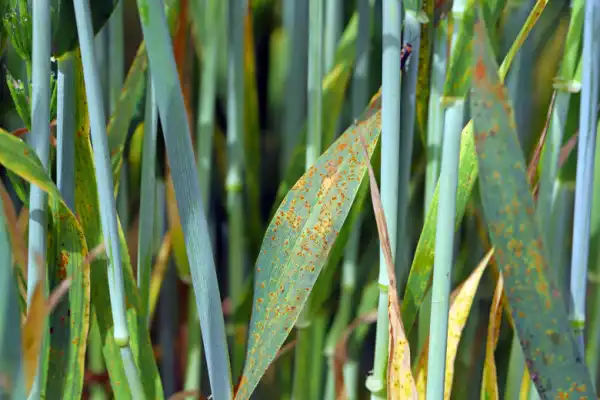
If you walk through your lawn and notice orange-brown powder coating your shoes, your lawn isn’t rusting. Instead, you might have a fungal infestation known as lawn rust (also called grass rust or rust disease). What is lawn rust? The good news is that it’s highly treatable and usually won’t kill your lawn. However, lawn rust can weaken your lawn and leave it susceptible to other diseases that are potentially more harmful.
In this article, we’ll give you the low-down on lawn rust. We’ll review what causes lawn rust, how to treat it, and—best of all—how to prevent it in the first place.
What Is Lawn Rust?
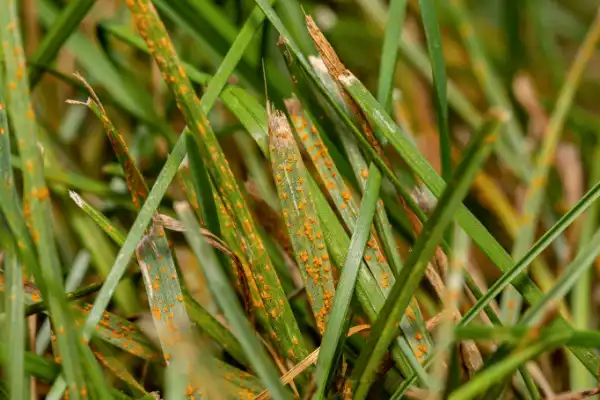
Before we can discuss how to treat grass rust, we must understand what it actually is. Grass rust gets its name from the rusty-colored powder that coats the blades of an infected lawn. However, rust has nothing to do with this condition. Instead, lawn rust is an umbrella term that refers to several species of Puccinia fungus.
The disease begins as yellow spores that eventually lengthen and rupture into an orange-brown powder that coats blades of grass. Lawn rust weakens the grass, making it more difficult for grass to photosynthesize. Weakened grass can also be more vulnerable to other lawn diseases, insect infestations, and other forms of stress.
What Are the Symptoms of Lawn Rust?
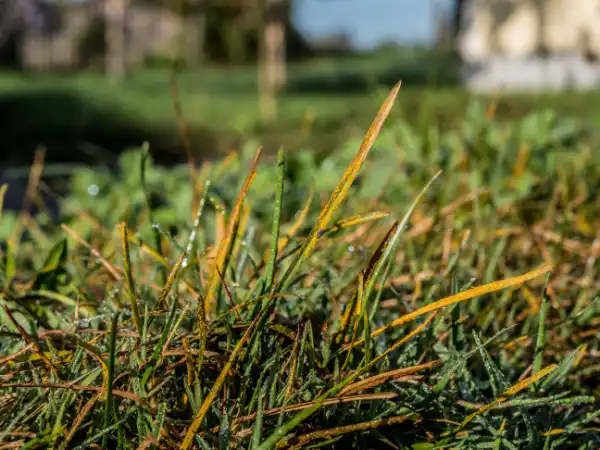
The most obvious symptom of lawn rust is the rust-colored powder that covers your grass blades during an infection. This powder brushes off easily and may coat your shoes, clothing, or the fur of your pets.
You may also notice yellow dots (spores) on your grass blades in the disease’s early stage. Sometimes, these yellow dots look like sunlight on your grass, but closer inspection will show them for what they really are.
Another big indicator of lawn rust is weakened and thin grass. You may notice that your lawn looks less healthy and that your grass blades break easily.
What Causes Lawn Rust?
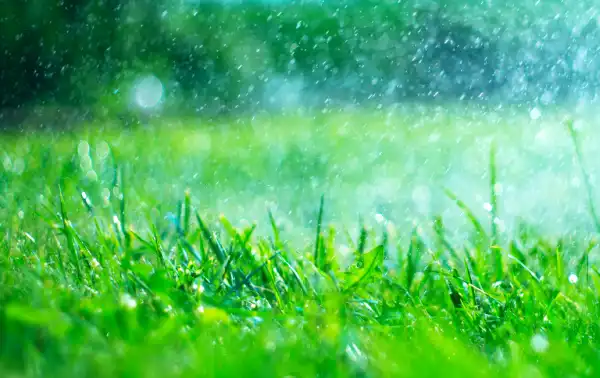
Certain conditions can make it easier for lawn rust to spread. Like most fungi, grass rust thrives in areas that are warm, wet, and shaded. Here are a few factors that increase the chances of a lawn rust outbreak.
- Season: Lawn rust tends to appear in the summer or early fall when temperatures and humidity are high.
- Moisture: Heavy rains or lots of morning dew can help lawn rust thrive.
- Weather: Cloudy, humid days followed by lots of sun are ideal conditions for lawn rust.
- Low nitrogen: Lawn rust does best in soil with low nitrogen content.
- Type of grass: Certain types of grass, including Kentucky bluegrass, perennial ryegrass, and tall fescue, are more susceptible to grass rust than others.
How to Treat Grass Rust
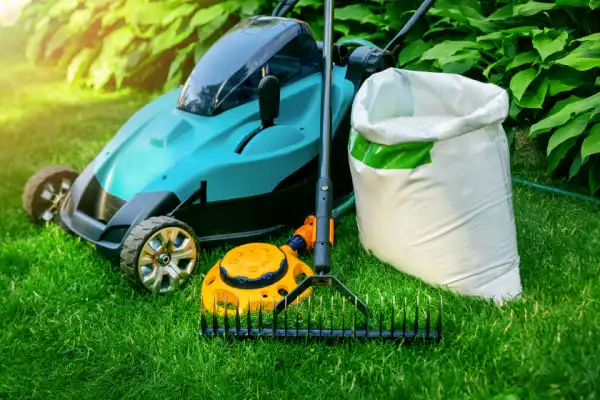
In most cases, lawn rust treatment doesn’t require the use of fungicides. Instead, the best treatment is to eliminate the conditions that help the fungus thrive. You can’t always control the weather or the sun, but here are a few ways to combat an active lawn rust infection:
- Reduce watering: Switch to watering deeply but infrequently instead of more frequent, shallow watering.
- Water in the morning: This will give your lawn time to dry during the day.
- Fertilize your lawn: Adding nitrogen to your lawn will help make your soil less hospitable to grass rust. (Note: It may not be appropriate to fertilize your lawn depending on the time of year.)
- Aerate your lawn: Aeration provides your lawn with a better flow of oxygen and nutrients and also supports better soil drainage.
- Prune: Cutting back shrubs, plants, and trees can eliminate shade and provide more sunlight to your grass.
If it’s getting close to the end of fall, your best bet may be to simply wait and allow nature to take its course. Most cases of lawn rust won’t survive a cold winter.
How to Prevent Lawn Rust
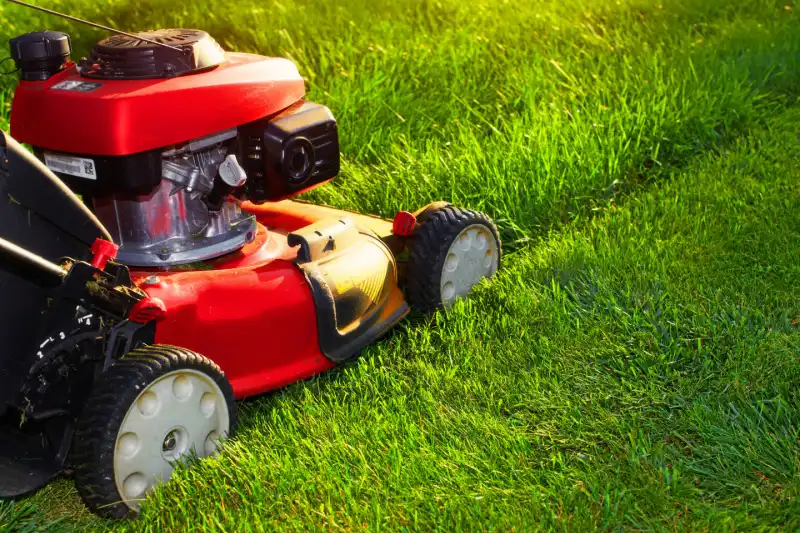
Why worry about lawn rust treatments when you can prevent the disease from ever taking hold? The best way to prevent grass rust is to simply maintain the overall health of your lawn. That means regular mowing and performing seasonal fertilization and aeration.
A strong, healthy lawn can usually resist a lawn rust infection.
How Professional Landscapers Can Help Prevent or Treat Lawn Rust
If you’re worried about lawn rust but don’t have time to perform all the TLC your lawn requires, consider hiring a professional landscaping team. Knowledgeable and experienced landscapers, like The Grounds Guys®, can play a big role in preventing lawn rust simply by providing regular lawn maintenance and taking care of seasonal lawn services.
If you already have a lawn rust infestation, The Grounds Guys can provide proven lawn rust treatments, including fertilization and aeration. In severe cases, we may recommend fungicide treatments and can handle that service as well.
Ready to get your lawn into shape so that it can fight back against lawn rust? Find The Grounds Guys nearest you today. We have friendly, reliable lawn care teams across the US and Canada and are proud to offer the Neighborly Done Right Promise™, which guarantees customer satisfaction.
Contact us and get a free estimate today!
 Click to call
Click to call


